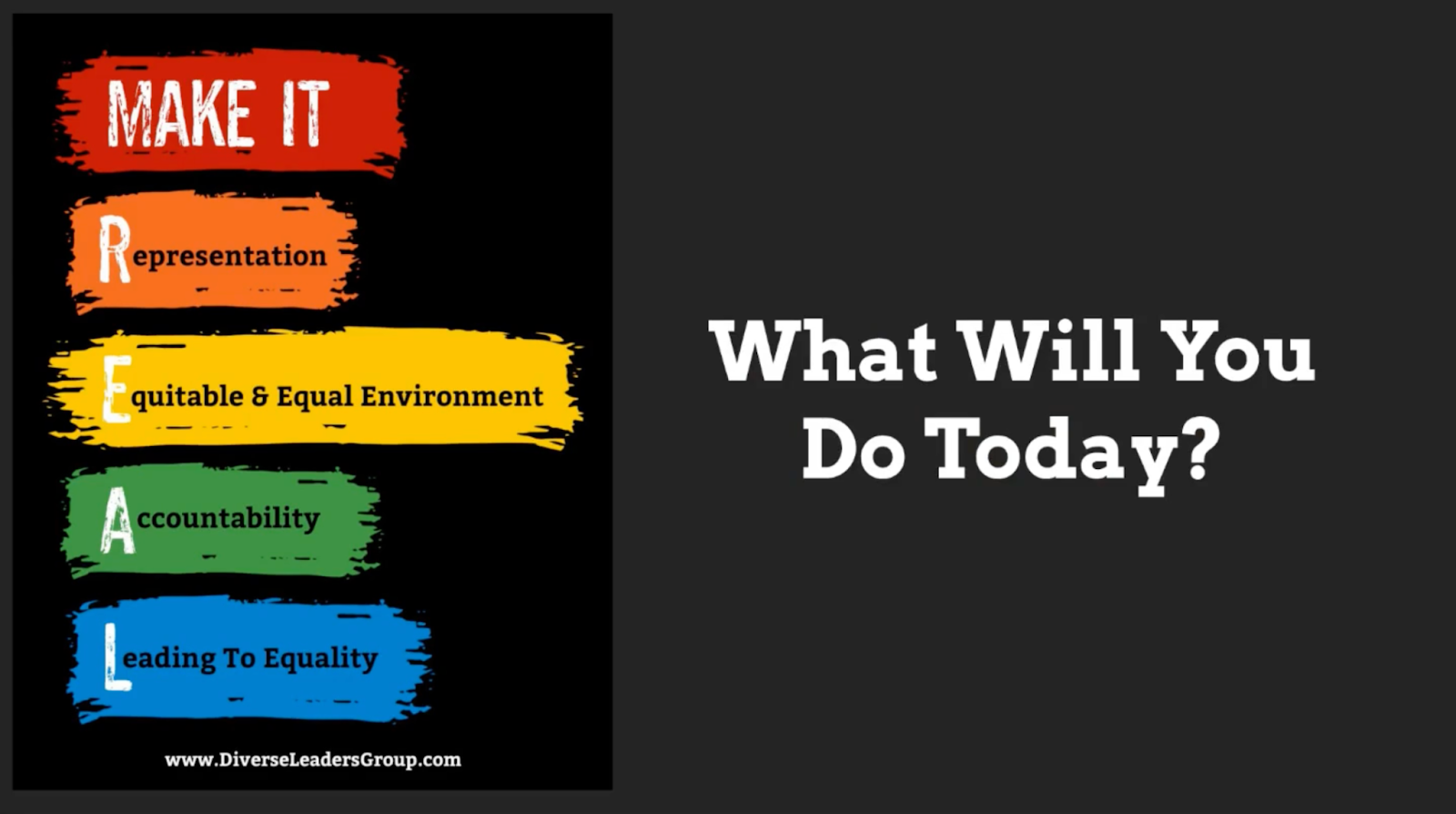This article is based on a presentation from the Women in SaaS Summit 2022. Get the full, unedited talk OnDemand right here.
You may have heard about DEI. It's kind of a buzzword at the moment. It stands for diversity, equity, and inclusion. Honestly, even though I’m in this space, I sometimes get bored by it. I look at the posts on my LinkedIn feed, with all their jargon, and I don't always know what people are saying.
That’s why, in this article, we’re going to break it down into digestible talking points, including:
- What’s in it for me?
- The business case for DEI
- Let’s make it REAL
- Be intentional about language and lexicon
- Unlearn and relearn
- Be a role model for your teams
- Manage change
- Put your money where your mouth is
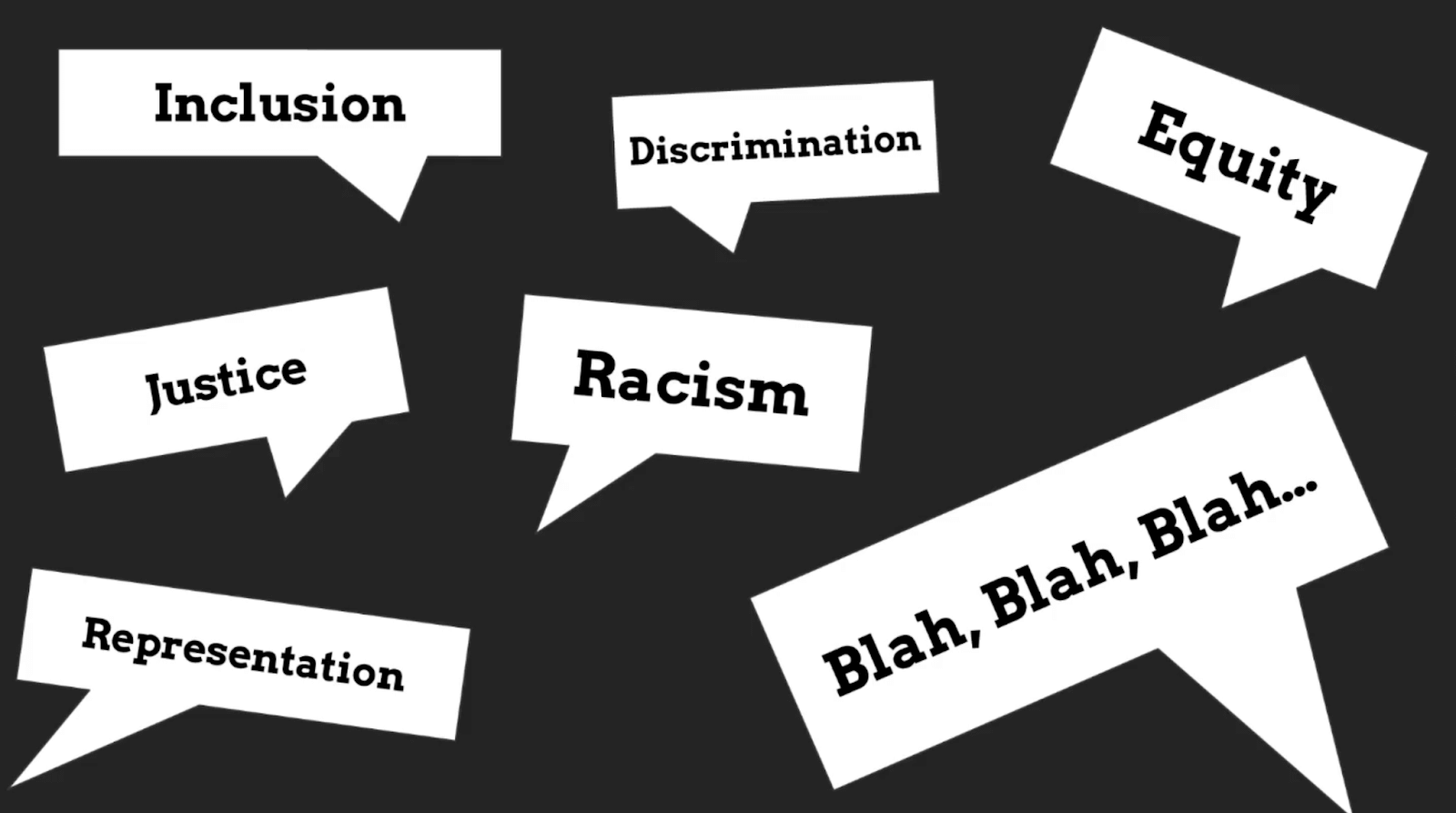
At your company, you may have tried a number of different initiatives to improve inclusion and diversity. You may have tried to address the gender imbalance. You may be looking at how to tackle discrimination and racism. But maybe these efforts aren’t working quite as well as you’d like.
To help you on your way to true equality in your workplace and your community, I’m going to lay out my REAL World Equality Framework. I’ll also equip you with five practical steps you can take to make a positive change today.
But first, a quick introduction. I'm Lea Jovy-Ford, and I’m the founder and CEO of a brand-new company called Mission Equality, whose origin story is very interesting and relevant to today’s topic.
Until recently, I was the co-founder and COO of an ed-tech startup. In 2021, we decided to go for a pre-seed round and raised half a million in six weeks.
Last year, we took the company to the World Economic Forum in Davos to talk about progressive education and everything we were doing. All in all, things were going pretty well. So why on earth did I resign?
In a nutshell, racism.
Without going into too many details, even at the C-suite and co-founder level, I felt unsafe and subject to the systemic power dynamics at play. If that can happen at the top, it can happen everywhere. And it does.
It happens everywhere.
Let’s fix that.
What’s in it for me?
At the moment, as companies tighten their belts, there's quite a lot of talk about scrapping DEI altogether. People are asking themselves if this is something we really need to focus on. My question to everybody is, why shouldn't we be focusing on this?
I think the biggest thing that stops people from really getting diversity, equity, inclusion, and belonging is the answer to the question “But, what's in it for me?”
As most people in marketing know, if you want people to buy something, or you want them to buy into something, you've got to answer these pressing questions in a customer's mind: what's in it for me? How am I going to benefit from it? What am I going to get?
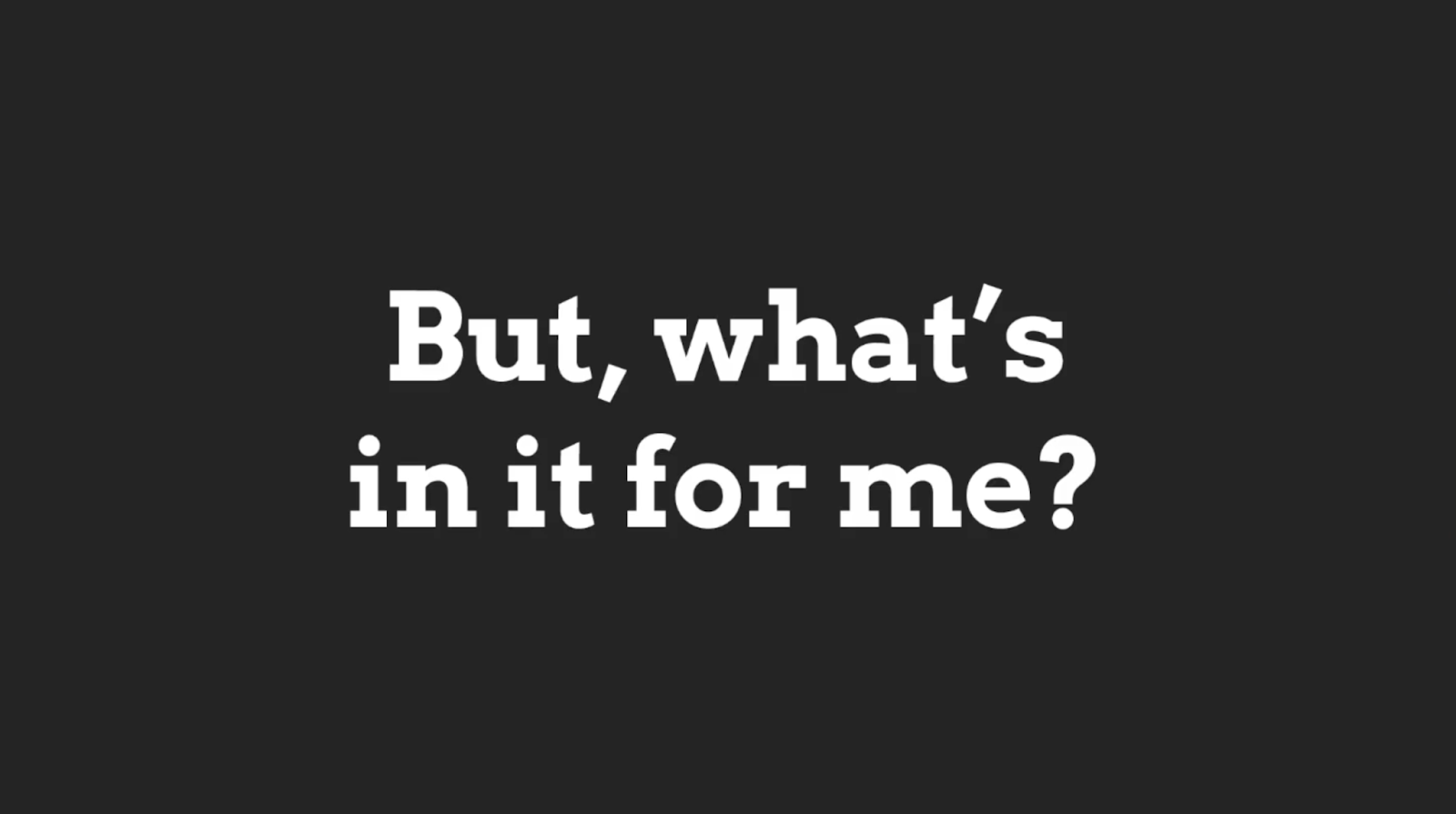
Quite frankly, in most instances, people in power don't want to share that power. They don't see what's in it for them. They don't understand how they’re going to benefit.
However, let’s look at the recent overturning of Roe versus Wade. It’s been a massive topic for people – particularly women – everywhere. First, there was unity. Women everywhere were united in their horror at what was unfolding before their eyes.
Then the division started. Black, brown, and indigenous women began to point out that they'd been trying to warn people for years this was coming, that this kind of domination and control over women's bodies was happening, but people didn't listen.
Many white people didn't listen until it significantly impacted them. It didn't seem to matter until it suddenly did. Let’s not wait until more people’s rights are stripped from them before we start caring about DEI.
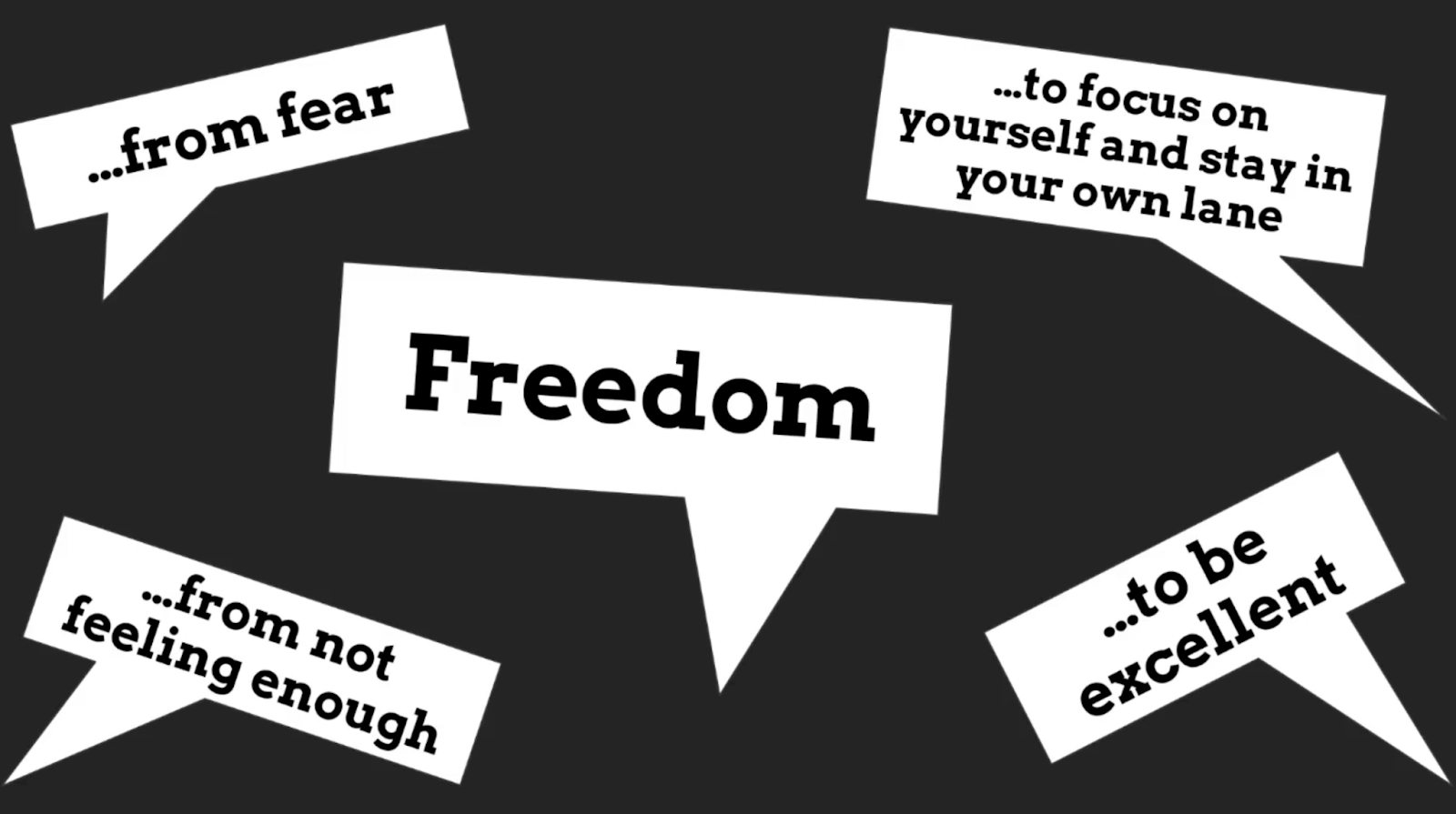
As I said, we've got to look at the question, “What's in it for me?” How does everybody benefit from equality? The answer to that is freedom. It's freedom from the roles we didn't choose.
It's freedom from either being told that you’re an oppressor or that you are being oppressed. It's freedom from being called a racist (which in many people's eyes is one of the worst things that they can ever be called). It's freedom from being racially harmed.
If we no longer need to focus on equity, if we no longer need to focus on making sure everybody's at the same starting line, we can focus on ourselves. We can focus on being the best that we can be.
That greater awareness and understanding of ourselves and others leads to better connections, better communication, and better collaboration – all the skills that companies everywhere say they want.
The business case for DEI
From a company perspective, we're all focused on the business case for DEI. How does it help the bottom line? How does it help us achieve the company vision?
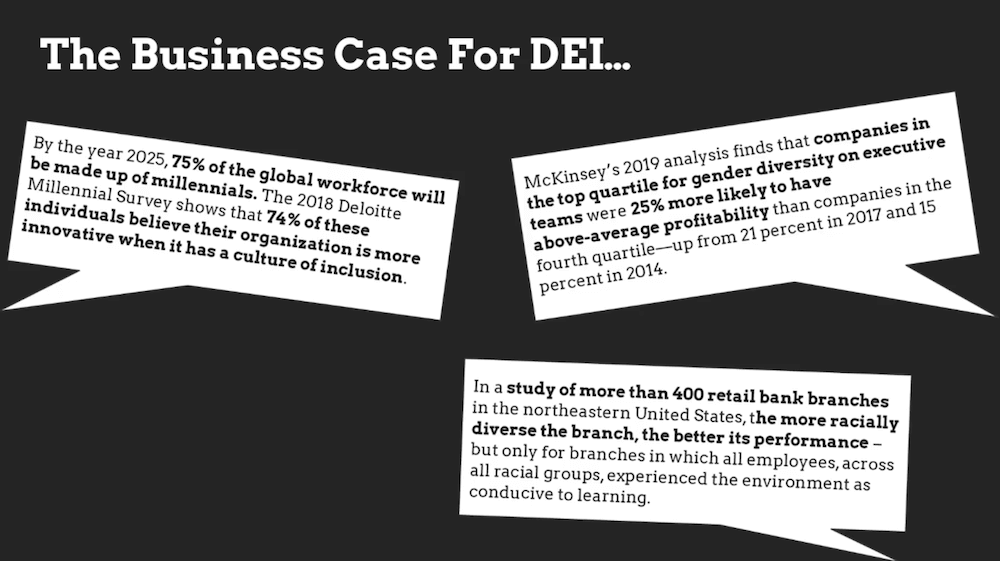
Happily, there are plenty of stats out there to show how having a diverse and inclusive workforce can help companies to gain and retain the best talent, become more profitable, and create an environment that's more conducive to learning.
But why do we even need a business case? Why do we need a commercial motive for providing an equal and equitable workspace for everybody? It's not a business case. It's a human case.
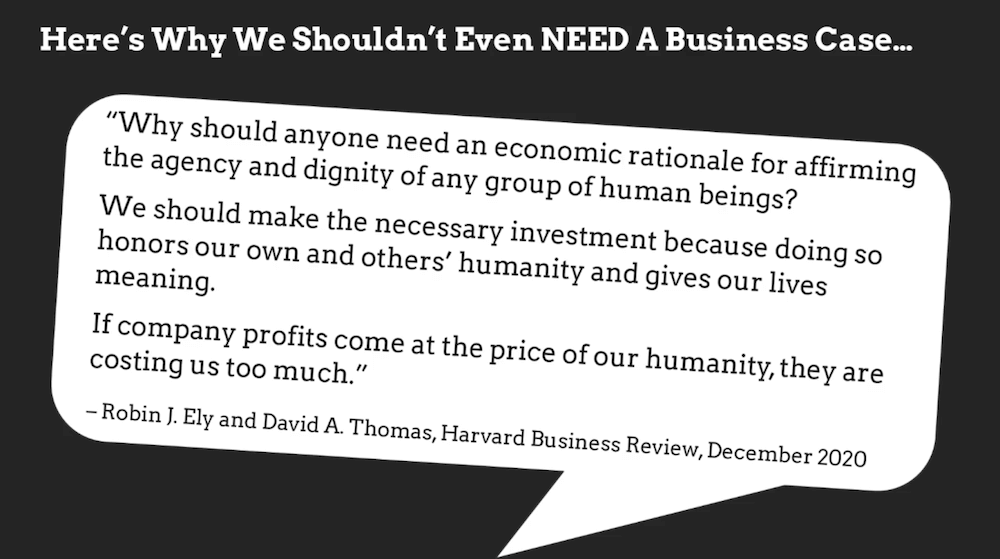
Let’s make it REAL
At Mission Equality, we use a framework called the REAL World Equality Framework. Our goal is to make it real for everybody. You might be wondering what that means. Let me explain. REAL stands for Representation, an Equitable environment, and Accountability, Leading to equality. Let’s take a closer look.
Representation
This word pops up a lot in conversations about DEI. You might hear people say, “We need to look at better representation,” but what does that actually mean?
Representation means that everybody can see themselves reflected, supported, and treated equally in society and the communities to which they belong.
Why does it matter to companies? Well, unless you have a very niche audience, it's likely that your customer base has its own level of diversity. Does your workforce reflect and represent that too?
If not, why not? There's a lot of focus on recruitment at the moment. If you can hire more women, people of color, and neurodivergent people, then you'll be ticking that box and doing a good job of representation.
But there's increasing evidence that representation doesn't necessarily make any difference at all to the bottom line. It doesn't really make any difference to how the people who work for you feel. In fact, the evidence is looking like just having more diverse people in your team has no meaningful benefits.
For representation to matter, you have to go further.
Imagine that you are one of a community that is consistently and persistently marginalized, and whose voices aren't heard. Now imagine that you’re at a company where, no matter what level you're at, you know that your voice matters.
You know that when you speak, you’ll be listened to and what you say will be taken seriously. Imagine not having to fight just to be heard, just to have a safe seat at the table.
How would that feel? How would that make a difference to you? How would that make a difference to your team? How would that make a difference to your kids and the younger generations coming up?
That's what true representation feels like to people. It's an equal sense of power. It's an equal sense of belonging, it's an equal sense of control. Who wouldn't want that?
Equal and equitable environment
The E in the REAL framework stands for an equal and equitable environment. How safe do you currently feel at your workplace? Do you know how safe your colleagues and direct reports feel?
Does everybody feel comfortable bringing concerns to the table? What about questioning performance? Or the CEO's performance? Or your colleagues' performance? Is it safe to do that without fear of retaliation?
How well supported are all your people to perform at their best? How well supported are you to perform at your best? How about if you fail? What if you try something and it doesn't work? What happens then?
What about the people who need extra support? Do they receive it? Is access to support fair and equal? Are all people mentored equally? Are all opportunities for learning and growth fair and equally available? Do some people have the ear of leadership more than others?
And what if a white man performs poorly at your company? What if a white woman performs poorly at your company? What happens? What if a gay white woman performs poorly at your company? What if a black gay woman performs poorly?
How do you design and create an equal and equitable environment, and how are you doing that?
I'm asking a lot of questions and I'm not providing any answers, but this is the work that a lot of companies are figuring out at the moment. We've got our own version of how we do that, but I think that the key, to begin with, is asking the difficult questions.
Accountability
The A in the REAL framework is accountability. Accountability and responsibility go hand in hand. Responsibility is typically task-oriented; it’s about who is responsible for getting X done. Accountability is what happens after X has been done. That nuance is really important.
Somebody has to step up and take responsibility in the first place – that's where we're coming unstuck with DEI. In many cases, we didn't choose this responsibility.
We didn't raise our hands and ask to step in. Nor did we choose the paths that our ancestors took, the paths of colonialism, subjugation, domination, power, control, and marginalizing and excluding certain people, because of social constructs that mean nothing.
None of us chose for things to be done that way, yet we're now being asked to hold ourselves accountable for doing something different. It feels unfair, and that's why many people struggle with DEI – because it is unfair. We didn't choose any of this and yet we're now being told that we have to do something about it.
I believe that this is our chance to choose that responsibility. It's our chance to step up. It's our chance to raise our hands, accept the job, and be accountable for what we're doing currently and what we want to achieve in the future.
It’s our chance to put in place systems, approaches, and mindsets that will give future generations a better chance of being held accountable for something that they might just get to choose.
Leading to equality
The final letter in the REAL framework stands for leading to equality. That's what it's all about. DEI is a process in that sense. The goal is for everybody to be equal and treated equally.
This needs courageous leadership. It needs people of all kinds, at all levels, and of all ages – particularly younger generations – to get on board with it.
Rather than being bored by DEI, we need them to understand its benefits and be able to sell those benefits to everyone. That's the biggest challenge. It has to start at the top, but every single person needs to lead the way to equality in all their communities.
I imagine there are lots of women reading this. We live in a world where the balance of power doesn't lie with us. We've been working at feminism for decades, in the same way that black and brown and indigenous people have been working towards anti-racism for decades, and yet here we are. So how do we move forward?
So what does leading to equality look like? What are some of the practical things that you can start doing as an individual and as a leader? You don’t have to be the leader of a company to follow this advice; you can be the leader of a team or the leader in your own life. Wherever you are in life, let’s see how you can lead to equality.
Be intentional about language and lexicon
There's a lot of debate in the DEI world about the right words to use, and people often get bored with the quibbling and the back and forth about which is the right term. I get that.
The reason why language matters is that the words we choose and the words we use have power. That’s because the words we use – whether out loud or in our heads – drive our thoughts, and our thoughts drive action.
Most of us talk to ourselves all the time. If we use powerful positive languaging and words, versus negative, destructive, harmful words, it makes a difference. We all know that. The same applies when it comes to thinking about equality.
If you're uncertain of what to do to lead to equality, this is where I would start. People ask what they can do on a practical level, but it's the words and thoughts in your own mind that you use to motivate yourself, so this is where it all begins. Pronouns are important, but this goes deeper than pronouns.
Unlearn and relearn
The words that you choose have power. They can help or they can harm, so as a leader, getting the languaging right is fundamental. This often requires some unlearning and relearning.
There are probably a lot of offensive phrases in the lexicon that you grew up with. Some very common ones are “that's crazy” and “that's insane.”
These expressions are sanist and they can be offensive to people with mental health issues, but we hear them all the time. As a leader and in my personal life, I’m now so much more mindful of the words that I choose to use, in order to do as little harm as possible.
Be a role model for your teams
Languaging is key. Unlearning and relearning are also key. Being able to model that to your teams is crucial.
At Mission Equality and at my previous company, it’s become common practice to challenge people and say, “That's not quite the right language – could you choose a better phrase?” It’s not a big deal; it has just become a thing that people do, and we all understood why.
That culture of it being okay to make mistakes is fundamental, and it will carry over from the DEI into the rest of the business. That’s great! Whatever their roles, we want people to know it's okay to make mistakes, it's okay to seek support, and it's okay to adapt your approach and do better.
Manage change
The fourth part of leading to equality is exceptional change management. I’m a former management consultant, and change management was always key. Achieving equality after centuries of inequality requires real lasting change.
It requires people who can manage that change across the board with people who perceive that they're losing power and people who are gaining power.
When you’re enacting change, you decide upon the policy, you build the processes and structures that will allow you to implement that policy, and then you have to manage the change across people.
That's often the most difficult part. It requires skillful change management, a leadership quality that is often underappreciated when it comes to DEI initiatives.
Put your money where your mouth is
Finally, leading to equality – particularly in a company – involves putting your money where your mouth is. It involves operationalizing policies that tackle discrimination and promote equity and equality.
It involves showing your commitment to pushing DEI across your company because it benefits everybody, not just the people who currently don't have the same levels of power.
This requires funding. It requires more than just appointing a DEI officer and leaving them to it. It requires an effort across the entire company at every level to succeed. Every person on your team can and needs to lead the way to equality.
So, are you bored, or are you on board?
What can you do today to lead to equality?
